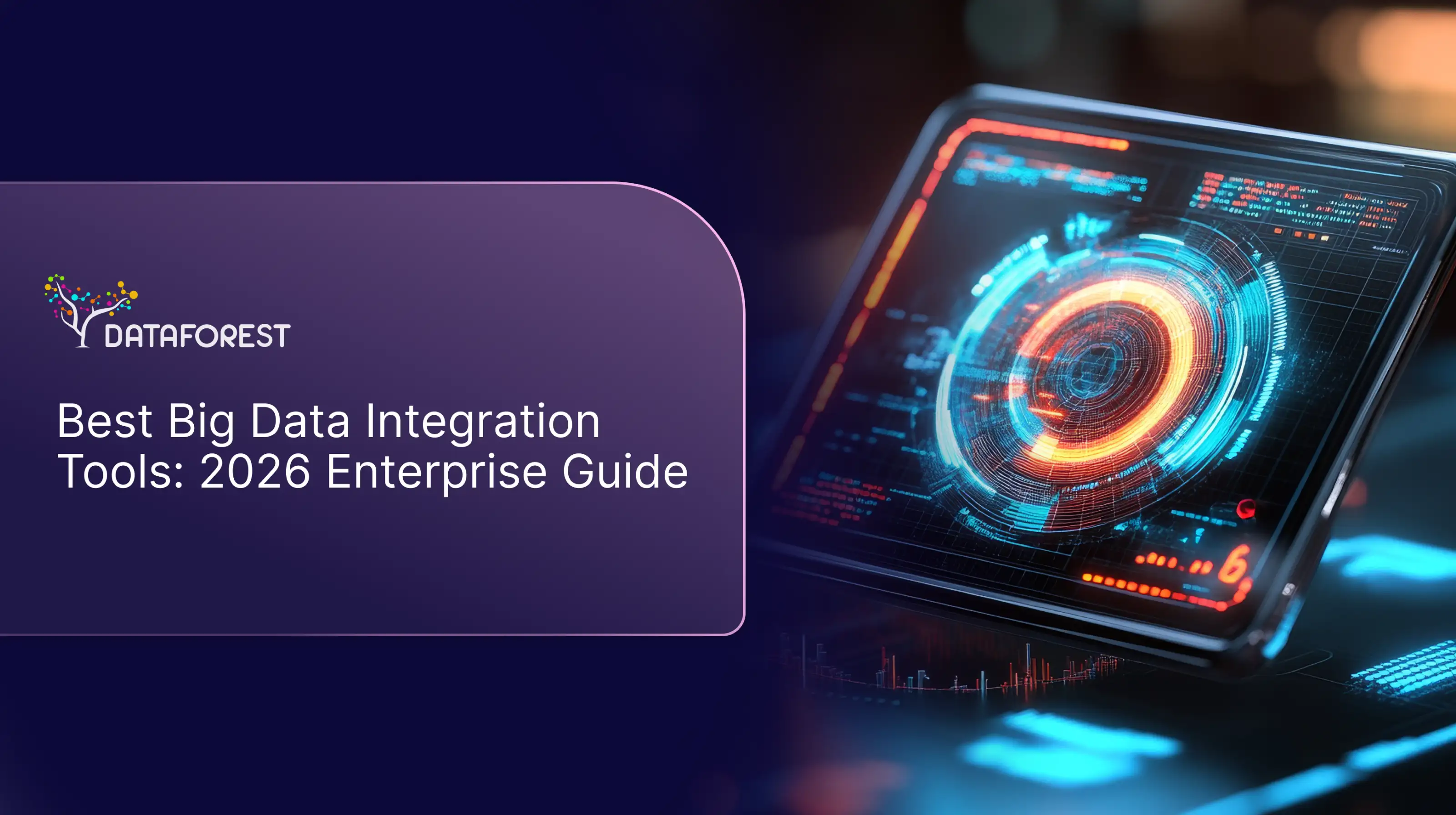With a digital transformation for small businesses, the automotive repair shop introduces an online booking system for its customers; this would easily track appointments and make it easier for customers to get their vehicles fixed. This could kick into effect with the shop offering car maintenance tips to their customers and increasing engagement on social media, making a large online community of car enthusiasts. Using new and advanced diagnostics makes it easier to fix a car, as modern vehicles have so many electrical devices that are controlled by sensors. Source data-driven insights by integrating advanced diagnostics with customer and vehicle data to deliver a more efficient and accurate repair service. To help improve the business, a CRM system could help with personalized services, improving customer loyalty, and make customers become more repeat customers. Select what you need and arrange a call.

Top Benefits of Adopting a Digital Model
Earn Income from Data
Digital transformation for small businesses involves integrating digital technology into all business areas, fundamentally stocking the gap, what-your-tucks business they operate, and how they deliver value to customers. It’s also a cultural change that requires organizations to continually challenge the status quo, experiment, and get comfortable with failure. Digital transformation for small businesses is reshaping different patterns and deploying these in new and creative ways to meet changing business and market requirements. It’s about much more, however, than IT. It’s about transforming processes and people, too, so that organizations can be more effective and better meet the needs of their customers.
Digital Experience Platforms in Business
A digital experience platform (DXP) is an integrated framework for building, managing, and delivering digital experiences. It combines several technologies that allow the consolidation of systems and processes around the creation, management, delivery, and optimization of contextualized digital experiences in multi-channel environments. These include content management systems (CMS), customer relationship management (CRM) tools, analytics, and artificial intelligence (AI). DXPs enable you to achieve the objectives central to your digital business strategy by capitalizing on multi-channel opportunities and unified customer data to deliver superior customer experiences (UX). By relying on the data you can gain from these touchpoints and leveraging the built-in AI capabilities, the DXP is a master of predicting, learning, guiding, and providing the means to satisfy and delight customers. As a result, you can make them loyal users and customers—loyal to your product, brand, and service. In the digital transformation for small businesses concept, you can leverage DXP functionality in terms of how content is managed and delivered, how user profiles are managed, and how it integrates with other systems to interact across digital channels. The business benefits of DXPs come in terms of customer engagement, improved effectiveness of your operations, and strategic insights driven by KPIs and analytic evaluations.
Experience Commerce in Digital Transformation for Small Businesses
Experience commerce combines the best parts of the current way of selling and buying things with new technologies. To do it well, a company has to be able to use data to understand who its current and future customers are; it has to be able to offer a way to sift through constantly growing product possibilities and pick the best thing for the customer, it has to stay in touch and encourage future purchases, it has to let customers browse and buy as they like through all of the current channels, and then it also has to offer disaster assistance and customer service, just in case.

The Strategic Role of Content Hubs
A content hub is a big, online content website needed for digital transformation for small businesses. To put it simply, it is a one-stop shop where all your online content can be found, no matter how much there is of it. It is also a single point of reference for a range of online content outlets across the enterprise. The idea behind a content hub is that if anyone asks you what any one piece of your content is all about, you can find out in one location: the content hub. The person asking might be a customer, an analyst, or a prospect you're hoping to sign up, so finding out the truth is vital to the best answer. By having one set of content, there can only be one truth, and nothing has to ever be out of date.
The Impact of Cloud Solutions on Digital Transformation
Cloud solutions refer to the cloud computing services and resources that aid in digitizing business to increase the pace of operations. The resources offered in the cloud solution are scalable and flexible and include storage, analytics capability, and computing power, and no initial heavy capital is required. They are helpful in rapid application development and change, enhanced data management, and working in an environment that is flexible anytime you are. They are also suitable for innovation in digital transformation for small businesses as you will come into contact with every new thinking through the cloud and finally, reducing operating costs, the additional efficiency in the daily operation of the business as well as rapid response to changes that are likely to occur in the market status or customer demands.
Digital Transformation Solutions in Industries
It illustrates the tailored digital solutions that are particularly relevant and beneficial for each industry, showcasing how different sectors leverage technology to enhance their operations and services due to the digital transformation for small businesses.
The Four Main Areas of Digital Transformation for Small Businesses
The two drivers emerged from the confluence of technological forces and business change. Digital technologies—particularly cloud computing and big data analytics—created the foundational infrastructure required for transformation, making it possible for businesses to store and process huge volumes of data cost-efficiently. Mobile and internet-of-things (IoT) technologies extended connectivity and enabled significant new data-collection capabilities that drove integrated business models. From the customer side, expectations shifted towards more individualized digital experiences, which in turn saw companies adopt customer-focused approaches in their services. And finally, the need for agility in digital transformation for small businesses also led businesses to innovate their operational processes and bring automation, AI, and machine learning to better decision-making.
Core Operations
Core operational processes are basic activities that a fully functioning business deals with on a day-to-day basis to make sure the business can run with digital transformation for small businesses. Digital operations, however, is a way that these core processes are integrated with digital technology to improve what they do and how efficiently they do it. This could be anything from automating tasks in everyday jobs, simplifying the supply process, or making customer services more digitized. Businesses do these things to make sure that what they are doing is more connected and able while still being able to change along with the market trends and customers’ demands while also being run at a lower cost and quicker.
Personalized Digital Experiences
Personalized customer experiences are when companies target digital advertising and tailor messages and experiences to their target customers based on how they think that particular person will want to experience a product or service. This uses Big Data and Machine Learning technologies to understand a customer's behavior and preferences better to cater to their preferences, predictably, in the hope of better purchase interactions. Some examples of digital transformation for small businesses could be tailored and suggested advertising by companies like Google, a tailored online shopping experience, or personalized content delivery by companies to users. A key element here is the experience, as manufacturers are seeing more customers value how they’re sold rather than what they’re sold and the cheapest price.
IT Infrastructure
It’s the complete hardware, software, networks, and services used to support the existence, operation, and management of a business IT environment. It enables the deployment of new technologies and digital transformation services for small businesses, including cloud computing services, data centers, cyber security, and networking capabilities. In today's era, IT infrastructure has become very important for operating and hosting applications over the cloud. IT Infrastructure needs to scale up quickly to implement new and useful technologies for the business due to the digital transformation for small businesses.
Information Management and Analytics
This area covers the techniques and tools for small businesses used to compile, organize, store, and modify business data to be able to make reliable business decisions. Information must be precisely organized and sent so that business owners can use business information properly. Owners can then use Big Data to determine unseen ideas by rivals. For example, owners can use their sales settings to predict their sales for the next season with digital transformation for small businesses. Based on this, owners have several choices, some of which have no risk while some are possible.

What does “digital business mean” to organizations
The Importance of Digital Transformation for Small Businesses
To be competitive, small businesses have to digitize. If they don't, they'll be faced with lower efficiencies, higher costs, and, most importantly, a loss of customers to their competitors who have invested in online banking. With digital technologies replacing manual and paper work, customers find online companies faster in Google, Yahoo and Bing. Digital transformation for small businesses gives businesses insights and data from customers' buying decisions. Finally, most businesses that invest in online activities are more agile, quickly responding to market discussions and customers' buying decisions.
- Increase Efficiency:
Digital transformation for small businesses expedites business processes by incorporating advanced technologies, hence allowing for easier workflows. Utilizing digital tools enables small businesses to automate such activities as stock management, client support, and internal messaging, thereby saving time and energy while boosting productivity.
- Save Money:
The implementation of digital solutions leads to cost savings for the organization. This is because many digital solutions directly reduce costs by targeting inefficient processes. For example, cloud computing can decrease the requirement of physical infrastructure in an organization and hence lower their fixed costs in IT. Similarly, automation and efficient digital transformation for small businesses lead to significant reduction in labor costs and wastage.
- Enhanced Customer Experiences:
Digital transformation for small businesses empowers small businesses to give their customers a convenient and tailor-made experience. Through their online platforms, using social media, and building mobile applications, businesses are able to interact with their clients more effectively. In gaining a better insight of customers, businesses are able to deliver a more customized service which will result in customers’ satisfaction and also increased customer loyalty.
- Automate Processes:
Digital transformation for small businesses also means that small businesses are able to automate parts of their business by using new and smart technologies. It could range from automatic emails being sent back to customers to deal with their inquiries to businesses having their back-office systems running in one system rather than on two or three systems in which data improves efficiency.

- Make Data-driven Decisions with Digital Transformation for Small Businesses:
Small businesses with access to AI data analytics tools are now able to tackle strategic decisions and gain real-time data. They can identify trends in the market and solve vital questions as to why their customers and clients behave as they do and make decisions which align to the objectives of their establishments.
- Prevent Errors and Increase Accuracy:
Digital technologies increase the chances for accuracy in digital transformation for small businesses; computing machines do not make mistakes, so as long as the software is correct and the information being entered is correct, there isn't much that could cause an error. Accurate records are extremely important, and a single digit off due to human error could result in extreme problems. When information is received by a computer right from a customer, it is a little more accurate.
Investing in digital transformation for small businesses equips small businesses with the tools and capabilities necessary to thrive in today's digital economy. For the same purpose, you can arrange a call.
Digital Tools and Processes in Small Business
Realizing the escalating significance of technological development to business competitiveness, the employment of digital approaches resulted. With the advancement of applicable software, hardware, and internet facilities, companies began deploying these tools to rationalize their operations, escalate communications, and heighten global but personalized accessibility in order for digital transformation for small businesses. The increase in this trend is due to the necessity of the ability to pivot and the ability to withstand volatility in today's fast-paced market, where data and digital influences are key.
- To implement digital transformation for small businesses, we must have a game plan stating the objective. By doing this, we can break up the task into parts and focus on what really matters so we can slowly roll out digital at our own speed. After each phase, this structured plan will allow us to move and adapt to needs and abilities.
- To get the most out of the digital transformation for small businesses, make sure that your employees actually know how to use those digital tools. Make different training programs for different levels of skills. Digital training should be complicated enough to reach the employees who are very familiar with technology while also not going so fast that non-tech-savvy people are completely lost.
- For digital transformation for small businesses to be effective, businesses must be capable of seamlessly integrating digital processes into the current workflow, enhancing the current process and not just completely gutting the entire process and putting in a new one. Change should come as an evolution, not a revolution, to the employees during the digital transformation for small businesses.
Following these steps, businesses can improve efficiency, enhance capabilities, and build a stronger competitive position in the market with digital transformation for small businesses.

Who is holding back companies’ digital transformation initiatives
The Provider for Small Businesses Digital Transformation
DATAFOREST helps you set up the structures behind your data and collects and helps store and organize your data to enable insightful analytics. With advanced AI Data Analytics and Machine Learning algorithms, we unveil valuable insights from your business data in the realm of digital transformation for small businesses. Now it is time to Help you integrate predictive analytics into your business process and enable small businesses to predict market trends, customer behaviors and potential risk. It won't be long. Just complete the form, and we will start to digitize your business processes.
FAQ
What does digital transformation for small businesses mean?
Digital transformation for small businesses means integrating digital technologies and digital strategies into all their business areas to improve their business productivity, enhance the customer experience, and gain a competitive edge in the digital era. Digital transformation for small businesses gives such a chance.
How can digital transformation for small businesses impact day-to-day operations?
Digital transformation for small businesses can significantly streamline their day-to-day operations by automating routine tasks, improving efficiency, and saving time. Additionally, it enhances decision-making and customer engagement through real-time data analytics and digital communication tools, directly impacting productivity and customer satisfaction with digital transformation for small businesses.
What are the key technologies involved in digital transformation for small businesses?
Key technologies involved in digital transformation for small businesses include cloud computing for flexible data management, AI and machine learning for data-driven insights, automation tools for operational efficiency, and digital marketing platforms for enhanced customer engagement. Additionally, mobile technologies and IoT (Internet of Things) are crucial in expanding connectivity and real-time data collection due to the digital transformation for small businesses.
Can digital transformation for small businesses benefit in niche industries?
Yes, digital transformation for small businesses can greatly benefit small businesses in niche industries by enabling them to leverage specialized technologies tailored to their unique needs, thereby enhancing efficiency and reaching targeted customer segments more effectively. It also allows these businesses to differentiate themselves in the market, offering innovative, data-driven solutions and services that cater to specific industry demands within digital transformation for small businesses.
What are some common challenges in digital transformation for small businesses?
Common challenges in digital transformation for small businesses include limited budgets and resources for implementing advanced technologies and potential skill gaps among employees in using new digital tools. Additionally, small businesses often face difficulties in integrating new digital solutions seamlessly with existing processes and adapting to the rapid pace of technological change and digital transformation for small businesses.
How do you start the journey to digital transformation for small businesses?
You can embark on a digital transformation for small businesses by identifying and examining their existing systems and processes and considering which areas could benefit from being digitized. To get started, it would be best to determine which digital initiatives should prioritize investment, which digital technology should be adopted, how to train employees about it, and if you could get help from a digital transformation consultant or expert.



.webp)
.svg)

.svg)
















